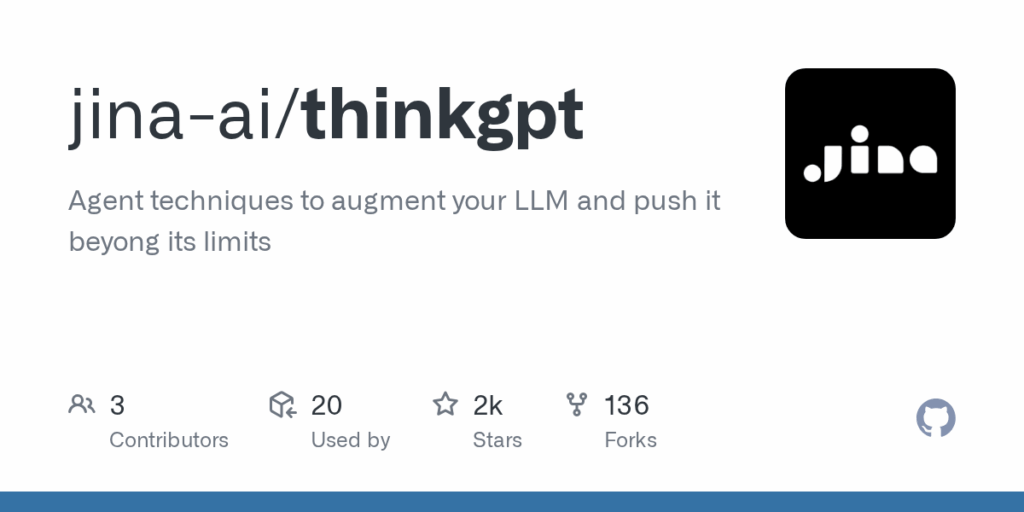thinkgpt
Basic Information
ThinkGPT is a Python library designed to implement Chain of Thought techniques and generative agent capabilities on top of large language models. It provides programmatic building blocks to let LLMs think, reason and act with persistent memory and higher-order reasoning primitives. The project targets developers who want to augment LLM behavior with long-term and compressed memory, iterative self-refinement, rule induction from observations, context-aware inference, and natural language driven conditions and selections. The README includes concrete API examples showing how to create a ThinkGPT instance, memorize and recall knowledge, predict using remembered context, summarize large content in chunks, abstract observations into rules and run self-refinement workflows. Example scripts demonstrate agent memory replay, memory expansion, and critic-driven refinement to support generative agent experiments and reproducible demos.








